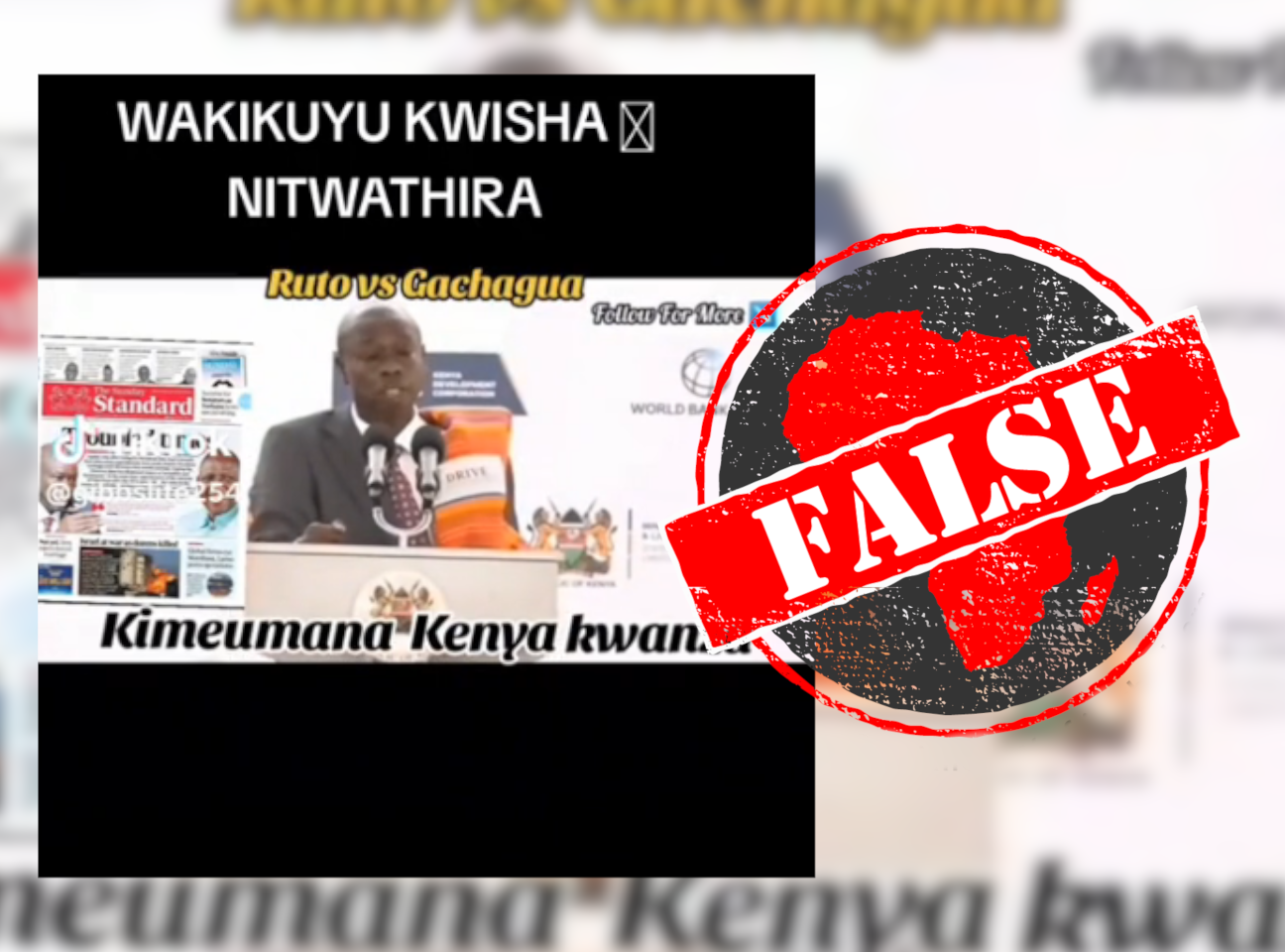IN SHORT: A short video posted on Tiktok next to a newspaper front page titled ‘Trouble in paradise” claims a fallout in Kenya’s ruling coalition after a cabinet shuffle of 5 October 2023. But the video is old and was shared out of context.
On 4 October 2023, Kenyan president William Ruto reshuffled his cabinet.
The move, announced by Ruto’s chief of staff Felix Koskei, prompted speculation that the deputy president Rigathi Gachagua had lost political clout.
A few days later, on 16 October, Kenyan newspaper the Standard published the headline “Trouble in paradise”, indicating a fallout between the president and his deputy.
A social media user then picked an image of a newspaper headline and a video of Gachagua speaking, put together a video and captioned it “Ruto vs Gachagua” and “Kimeumana Kenya Kwanza”.
Ruto and Gachagua both belong to the ruling Kenya Kwanza coalition. “Kimeumana Kenya Kwanza” is Kiswahili for “things are tough inside Kenya Kwanza”.
Versions of the video were posted on Tiktok here, here, here and here.
In the video, Gachagua says: “I am going to call a meeting for the leaders of this region, the Mt Kenya region, to make a decision on how to deal with these characters now. This region, hakuna mtu atakubaliwa kuja katika region hii.”
The Kiswahili phrase at the end of the clip means “no one will be allowed to come to this region”.
In Kenyan politics “Mt Kenya” refers to a number of counties inhabited mainly by the Kikuyu, Kenya’s most populous tribe. Gachagua is the most senior politician from the region.
But does the video show Gachagua speaking about a fallout with his boss, the president? We checked.

Gachagua speaking in July about another politician
In the video, Gachagua has a shawl draped over his left shoulder with the word “DRIVE” prominently displayed. Behind him is the logo of the World Bank and partly hidden Kenyan coat of arms, signs that the video was taken at an official event.
Searching for the words “Gachagua” and “DRIVE” online led us to a video on YouTube of the deputy president giving a speech on 13 July. Drive is a government initiative for rural and pastoralist farmers, and is an acronym for “De-Risking, Inclusion, and Value Enhancement for Rural Economies in the Horn of Africa”.
However, Gachagua speaks in English throughout this video. But we browsed YouTube and found a longer video of the event, which includes the part of the speech where Gachagua made the remarks in Kiswahili.
When he spoke on 13 July, Gachagua was upset about the opposition protests that had taken place the day before. He blamed a former governor for fomenting chaos in Laikipia county, where the event was held.
He was not referring to Ruto, and these remarks had nothing to do with the seeming fallout after the cabinet shuffle of 4 October, some three months later.
The video has been shared out of context.
Republish our content for free
For publishers: what to do if your post is rated false
A fact-checker has rated your Facebook or Instagram post as “false”, “altered”, “partly false” or “missing context”. This could have serious consequences. What do you do?
Click on our guide for the steps you should follow.
Publishers guideAfrica Check teams up with Facebook
Africa Check is a partner in Meta's third-party fact-checking programme to help stop the spread of false information on social media.
The content we rate as “false” will be downgraded on Facebook and Instagram. This means fewer people will see it.
You can also help identify false information on Facebook. This guide explains how.




Add new comment